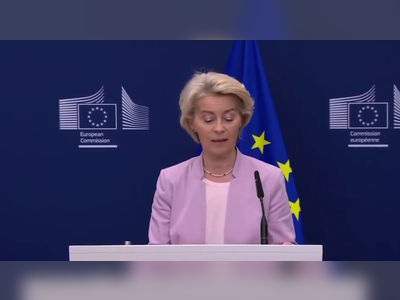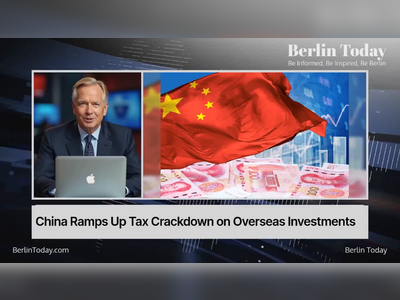Cambridge Dictionary Adds 'Skibidi,' 'Delulu,' and 'Tradwife' Amid Surge of Online Slang
UK-based dictionary incorporates 6,000 new entries reflecting influence of TikTok, internet culture, and evolving language trends.
The Cambridge Dictionary has added 6,000 new words and phrases to its online edition over the past year, highlighting the growing influence of internet culture and social media on the English language.
Among the latest entries are 'skibidi,' 'delulu,' and 'tradwife,' terms that originated in online communities and have since spread into mainstream use.
The dictionary defines 'skibidi' as a versatile word that can mean 'cool' or 'bad,' or function as a humorous filler without a fixed meaning.
The term gained popularity through 'Skibidi Toilet,' a viral YouTube series featuring surreal animations.
'Delulu,' a shortened form of 'delusional,' refers to believing things that are untrue, often by choice.
The word, first used in K-pop fandoms a decade ago, became more widely recognized earlier this year when Australian Prime Minister Anthony Albanese used it during a parliamentary speech.
Another addition, 'tradwife,' short for 'traditional wife,' describes influencers who promote traditional gender roles within households.
The dictionary has also included 'broligarchy,' a blend of 'bro' and 'oligarchy,' a term referencing a group of technology leaders present at Donald Trump’s 2017 inauguration.
In addition to new vocabulary, existing words have been updated with expanded meanings.
'Snackable,' once referring only to food, is now used to describe short, easily consumable online content.
The terms 'red flag' and 'green flag' are increasingly used to describe negative or positive traits in relationships, rather than their literal meanings.
Dictionary editors said new entries are chosen based on evidence of sustained use, reflecting how internet culture continues to reshape modern English.
Among the latest entries are 'skibidi,' 'delulu,' and 'tradwife,' terms that originated in online communities and have since spread into mainstream use.
The dictionary defines 'skibidi' as a versatile word that can mean 'cool' or 'bad,' or function as a humorous filler without a fixed meaning.
The term gained popularity through 'Skibidi Toilet,' a viral YouTube series featuring surreal animations.
'Delulu,' a shortened form of 'delusional,' refers to believing things that are untrue, often by choice.
The word, first used in K-pop fandoms a decade ago, became more widely recognized earlier this year when Australian Prime Minister Anthony Albanese used it during a parliamentary speech.
Another addition, 'tradwife,' short for 'traditional wife,' describes influencers who promote traditional gender roles within households.
The dictionary has also included 'broligarchy,' a blend of 'bro' and 'oligarchy,' a term referencing a group of technology leaders present at Donald Trump’s 2017 inauguration.
In addition to new vocabulary, existing words have been updated with expanded meanings.
'Snackable,' once referring only to food, is now used to describe short, easily consumable online content.
The terms 'red flag' and 'green flag' are increasingly used to describe negative or positive traits in relationships, rather than their literal meanings.
Dictionary editors said new entries are chosen based on evidence of sustained use, reflecting how internet culture continues to reshape modern English.
AI Disclaimer: An advanced artificial intelligence (AI) system generated the content of this page on its own. This innovative technology conducts extensive research from a variety of reliable sources, performs rigorous fact-checking and verification, cleans up and balances biased or manipulated content, and presents a minimal factual summary that is just enough yet essential for you to function as an informed and educated citizen. Please keep in mind, however, that this system is an evolving technology, and as a result, the article may contain accidental inaccuracies or errors. We urge you to help us improve our site by reporting any inaccuracies you find using the "Contact Us" link at the bottom of this page. Your helpful feedback helps us improve our system and deliver more precise content. When you find an article of interest here, please look for the full and extensive coverage of this topic in traditional news sources, as they are written by professional journalists that we try to support, not replace. We appreciate your understanding and assistance.










